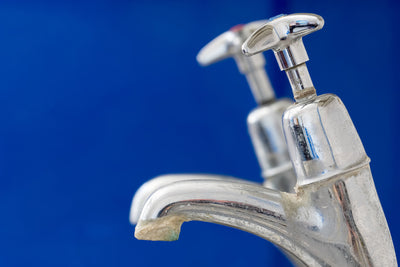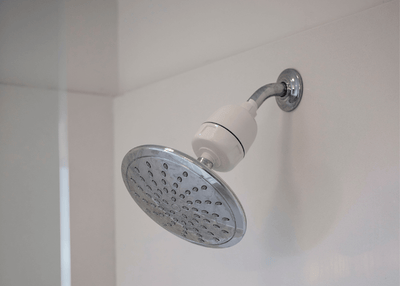We get a lot of questions from people about Whole House Filters. Because Hydroviv has a “Help No Matter What” mindset when it comes to technical support, we sometimes find ourselves helping our website's visitors evaluate products that we don’t sell!
What Is a Whole House Water Filter?
As the name suggests, whole house filters are installed on a home’s main water supply, so they process all water that comes into the house, including water used to flush toilets, do laundry, and water the lawn.
How Much Should I Expect To Pay For A Whole House Water Filter?
Systems marketed as whole home water filter systems can range in price from less than $100 to $10,000. Because the system is installed on the main water supply line, these systems typically require a licensed plumber for installation, which can add considerably to the overall system cost. Replacement cartridges can also be a significant cost for whole house filter systems. Because ALL incoming water is filtered by whole house systems, cartridges need to be replaced more frequently than if the same cartridge is used in a point of use application.
How Effective Are Whole House Water Filters?
Chemical Removal
With whole home water filters, you typically get what you pay for. Most whole house systems are designed to process large volumes of water for water softening and chlorine removal, and are not designed to remove things like chloramine, arsenic, disinfection byproducts, or lead. If you spend several thousand dollars on a high-end whole house system, pay to have it installed by a plumber, and replace the filtration media as prescribed, the system will probably perform as advertised. Just make sure that the system is designed to filter the chemicals you want removed... we have talked to people that have spent thousands on a whole house filter only to learn after the fact that it does not filter lead! On the other end of the price spectrum, most of the low cost whole house filters are only good for removing sediment from the water, and don't do a good job removing dissolved chemicals. The other thing to keep in mind is that if you remove chlorine from your home's water at the point where it enters the home, you introduce the risk of bacteria growing in all pipes downstream of the filter, because the filter removes the disinfectant.
Flow Rate & Impact On Water Pressure
Another performance aspect to consider is the impact on your home's water pressure, because a whole house filter can act as a "choke point" for water delivery. You don't want to run into a situation where there isn't enough water pressure to take a shower because the dishwasher is running and someone is brushing their teeth. Be sure to take into account that the cartridges used in single stage whole house filters become clogged over time, and the water pressure can drop dramatically throughout the filter's lifetime. A good plumber is a very good resource for helping you calculate your home's water demand and thus plan for the right water filter for your main water supply.How Good Are "General Purpose" Whole House Water Filters?
Simply put, it's not possible to build a whole home water filter that "filters everything bad" from your water on a whole house scale. For that level of filtration, you need to filter at the point of use (e.g. individual faucets- more on this below). However, there are some applications where whole house filtration makes sense. For example, water with a very high particulate load can clog up your point of use filters very quickly, so a whole house prefilter to address particles and sediment could be useful in this instance.
Hydroviv’s point of use filtration systems are designed to filter the water in your home used for drinking, washing food, cooking, and showering. By remaining focused on these applications (and ignoring the water used in toilets & washing machines), we are able offer consumers high-performance water filtration systems that cost less than the competition, and don’t require a plumber to install.
Where Can You Go For Advice On Whole House Water Filters?
Other Great Articles We Think You'd Enjoy:
What is Chromium-6?
What You Need To Know About Fluoride In Tap Water
Is Lead Lurking In New York City Tap Water?









